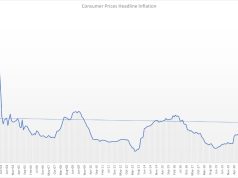- says parliamentary oversight needed
- sounds alarm over legality, enforceability of T-bill contracts
A News Desk Report
Private legal practitioner Jonathan Amable has filed a motion before the Supreme Court, seeking to block government from engaging in any new domestic borrowing or debt financing operations unless they are approved by parliament.
The application, if granted, could significantly impact the country’s fiscal policy and borrowing practices, which have come under intense scrutiny amid rising public debt and economic challenges.
This comes since the Office of the Attorney-General, which is representing government, is yet to respond to his original writ that was filed on February 15, 2024.
The legal challenge centres on allegations that government has been raising funds through various debt instruments – such as Treasury bills, Treasury bonds and advances from the Bank of Ghana (BoG) – without obtaining necessary approval from parliament for the terms of those borrowings.
According to Mr. Amable – who specialises in corporate and public finance legal advisory services transactions and is a Senior Associate, Financial Institutions and Capital Markets (FICM) Team, Bentsi-Enchill Letsa & Ankomah – these actions violate the 1992 constitution, which mandates that terms and conditions of government borrowings must be presented to and approved by parliament before becoming effective.
In a detailed affidavit filed in support of the motion, Mr. Amable argued that the state’s borrowing practices are “inconsistent” with the constitution, specifically Article 181(4) which requires parliamentary approval for the terms of debt contracts.
“The government of Ghana has been actively borrowing and creating repayment obligations for the state… despite their non-compliance with the clear and peremptory directives of articles 181(3), 181(4) and 181(6) of the 1992 constitution,” he stated.
Mr. Amable’s legal team argues that the unconstitutional borrowings, particularly those issued domestically, have created an “unequal” system wherein parliament has visibility and control over international borrowings but little oversight over domestic debt.
“The government of Ghana ordinarily has a full view of loans the state raises from non-residents, but no control over loans raised by the state from Ghanaian residents,” the affidavit stated.
The financial lawyer contends that government’s debt issuance practices – while done in compliance with the Public Financial Management Act, 2016 – fail to comply with the constitution’s stipulations, creating significant risks for the financial system.
“The unconstitutional conduct of the state potentially jeopardises the entire Ghanaian financial sector and hard-earned capital of the investing public,” he wrote, noting that the holders of these debt instruments include banks, insurance companies, pension funds and “ordinary Ghanaian” citizens.
Mr. Amable, for his part, maintains that the core issue is one of legality and accountability. “The purpose of the requirement for prior parliamentary approval of terms for the state’s borrowing transactions has been well espoused by this Honourable Court as being necessary to ensure transparency, openness, probity and accountability.”
Mr. Amable’s motion for an interlocutory injunction seeks to halt any further borrowing until the case is resolved, arguing that allowing government to continue borrowing without proper parliamentary oversight will cause irreparable harm. “The investing public, whose funds are at risk, and the Applicant… stand to suffer irreparable harm,” the affidavit stated.
The applicant asserts that such harm cannot be remedied through compensation or other legal means, given potential constitutional invalidity of the debt contracts.
The suit also seeks broader statutory reform. Mr. Amable is challenging the constitutionality of section 30 of the Bank of Ghana Act, 2002 (as amended), and section 61 of the Public Financial Management Act, 2016 and related regulations, arguing that these statutory provisions violate the constitution by enabling government to engage in borrowing without parliamentary approval.
In his filing, the lawyer noted that the relevant provisions of these laws are inconsistent with Article 181(4) of the constitution, which stipulates that any government borrowing must be approved by parliament before it becomes binding.
In addition to the immediate injunction, Mr. Amable has requested that the Supreme Court issue several declaratory orders – including a ruling that certain provisions of the Public Financial Management Regulations, 2019, are unconstitutional.
The applicant has also specifically targetted a US$10billion COVID-19 relief bond transaction between the Ministry of Finance and BoG – describing it as unconstitutional and seeking its reversal.
The application comes at a time of heightened public concern over the country’s economic outlook. Ghana has faced significant economic challenges in recent years: including a sharp depreciation of the cedi, inflation reaching record high, and an increase in fuel prices. Government’s fiscal policies, including tax hikes and a domestic debt restructuring programme, have done little to stem public dissatisfaction.
The case also highlights Ghana’s ballooning national debt. As of July 2024, the country’s aggregate domestic debt had reached approximately GH¢291billion – with more than GH¢289billion of this amount raised through Treasury bills and other debt instruments issued without parliamentary approval.
In total, the public debt has soared to GH¢761billion; up from GH¢608billion at the end of 2023, according to official data.
The growing debt load has contributed to the country’s mounting economic pressures, which include high inflation and a weakened currency.
Despite modest relief from the recent domestic and external debt restructuring programmes, Mr. Amable believes the prevailing domestic debt arrangement means the country will be back in a debt loop despite promises by current Minister of Finance Dr. Mohammed Amin Adam, about measures to combat spiralling debt.
At the recently concluded International Monetary Fund (IMF) and World Bank meetings in Washington, the minister said plans were underway to establish an independent Fiscal Council and place a cap on borrowings, without giving timelines.
Reacting to this in an interaction with B&FT, Mr. Amable said: “The Treasury-bill borrowings are becoming too much – and if we continue at this rate we will struggle with repayment obligations in the coming years”.
At its last auction the Treasury raised GH¢5.825billion from sales of short-term instruments, with its next auction targetting over GH¢6 billion.
Responding to concerns that seeking parliamentary approval could stifle government business – particularly at a time when access to other sources of funding are limited – and see a hike in taxes, he said:
“That is at the heart of the matter. We cannot continue to borrow and borrow and live above our means. Government must do the work of governance – not by borrowing or introducing more tax handles but making our tax system more efficient and increasing overall production.”
The case is also likely to draw significant attention to the BoG and MoF’s role in facilitating government borrowing.
According to Mr. Amable, the two institutions act as agents of the state in raising funds, often through methods that bypass the constitutional requirement for parliamentary approval.
Government’s use of Treasury-bills, for instance, involves the BoG coordinating with primary dealers to raise capital; with the Bank playing a central role in receiving bids during auctions.
Mr. Amable’s motion is expected to be heard by the Supreme Court in the coming weeks, though it remains to be seen whether the court will grant the requested injunction or allow government to continue its borrowing activities as usual. If granted, the injunction could prevent government from raising additional funds through domestic debt instruments unless they are brought before parliament for approval.
Analysts say the case could have profound implications for Ghana’s fiscal management and its broader economic governance. Should the Supreme Court rule in favour of the applicant, it would likely lead to significant reforms in how government raises funds – with increased scrutiny and involvement by parliament.
This is a developing story….

















